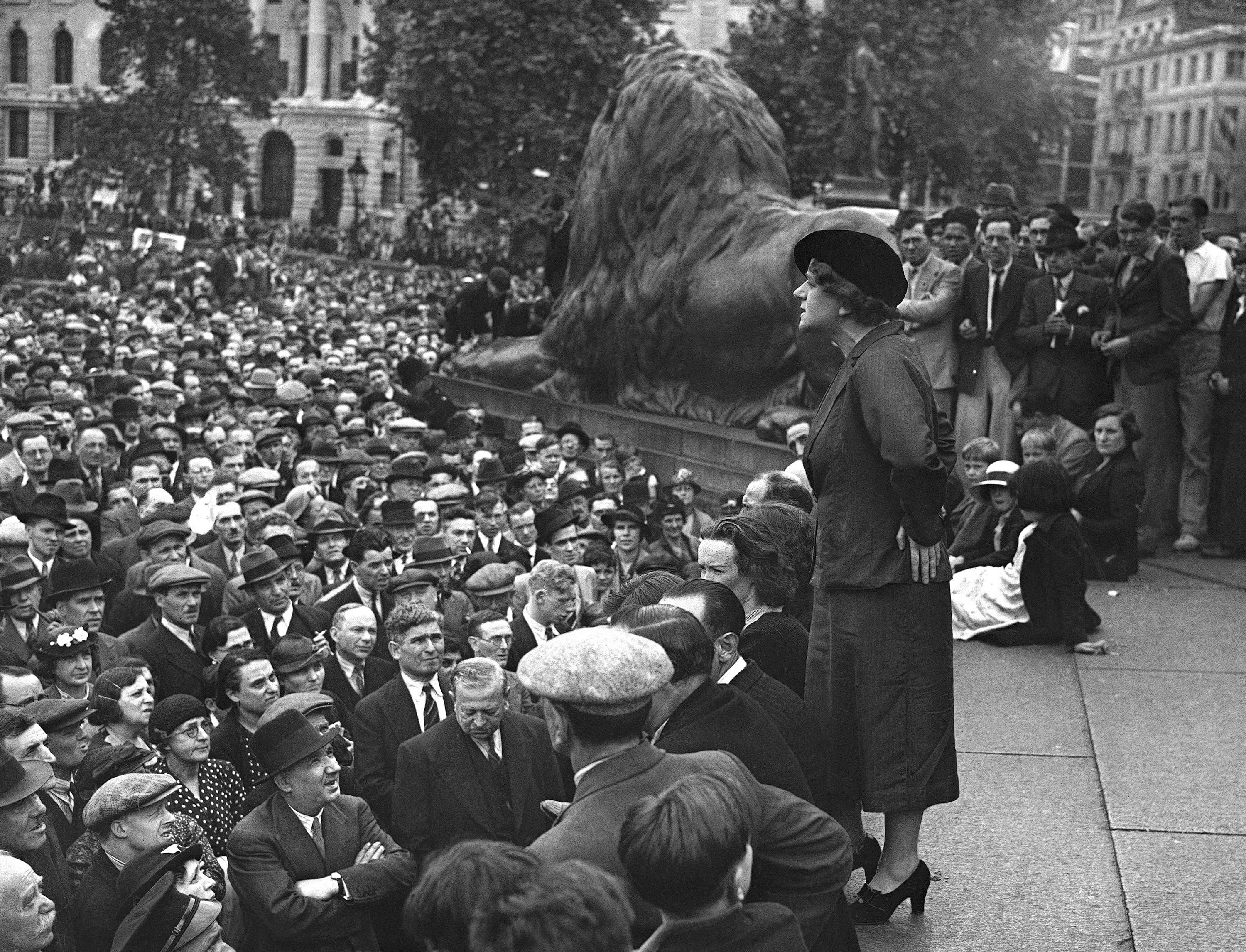Born rebellious
Born on 8 October 1891 into a devout Methodist and Conservative-supporting family, Ellen Wilkinson soon became sick and tired of the political and religious mantra she was exposed to in her youth. By her teenage years it was clear that her ideology of choice was socialism. Her first taste of left-wing views came from reading Robert Blatchford’s Merrie England, and in 1907, by the age of 16 she was a member of the Independent Labour Party (ILP).
Her exposure to politics not in the mainstream only increased when she became a student of history at Manchester University. Joining extra-curricular societies such as the University Socialist Federation and the National Council of Labour Colleges, Wilkinson began to disapprove of what she was being taught in her classes. This would be the first example of what would become a life of protest.
Aged 21, Wilkinson’s life of dissent stepped up a gear in 1912 when she became a passionate district organiser in the National Union of Women’s Suffrage Societies (NUWSS) and a member of the Manchester branch of the Fabian Society. Her pacifist views also came to the fore two years later as she joined the No-Conscription Fellowship.
After the war’s end, Wilkinson’s career flirted with the newly formed Communist Party of Great Britain but eventually turned towards the Labour Party, as she entered parliament as parliamentary secretary to Ramsey McDonald’s government in 1929. Despite losing her seat in 1931, after the formation of the National Government, she returned in 1935 as the MP for Jarrow, a town with one of the worst rates of employment in Britain. She knew something had to be done.

‘Red Ellen’
The Jarrow Crusade is a well-known event of British history but few know that Wiklinson was a major driving force behind the march. One of only four female MPs in the Labour government, in 1936 she instigated the march of 200 unemployed workers from Jarrow to London (a mammoth distance of 447 kilometres (278 miles) to present a petition to parliament.
A talented orator with a burning desire for social justice, Wilkinson criticised the politics of austerity, a phrase we are all too aware of today, and condemned what she saw as the government’s indifference to the plight of the north. Wilkinson was the only woman who marched, and she even organised a bus to carry supplies to help the marchers achieve their goal. The petition itself had 11,000 signatures and was carried in a safe oak box.
The march was met by swathes of sympathetic members of the British public but made no real political impact, and no proposal was made for the relief of Jarrow. She had been unsuccessful, but Ellen Wilkinson had demonstrated a strong bond with her constituency. Would a Westminster MP do the same today?
On the Franco trail
Buoyed by the Jarrow Crusade, the next year Wilkinson took on an even riskier mission: a journey to Spain, a nation gripped by civil war. Travelling with an all-woman delegation, the group visited hospitals and schools and met POWs and political leaders in Barcelona and Madrid. On her return to Britain, she appealed to the British people to support the Republican cause, labelling it as a ‘fight between right and wrong’ and an international struggle against fascism. In 1937, she returned, accompanied by no other than future Labour prime minister Clement Atlee.
They nearly didn’t make it to Spain after their plane was chased by an Italian fighter and their pilot had to take quick evasive action. Having safely landed, they documented the German bombing of Valencia and Madrid and handed their support to the Republican forces that were fighting Francisco Franco’s faction for control of the country. Perhaps Wilkinson’s biggest contributions to the war were the setting up of the Milk for Spain scheme and helping transport stricken Spanish families to the safety of Britain.
Despite all her efforts, Britain, now under Neville Chamberlain, followed a strict non-interventionist policy and, rightly or wrongly, very little was done.

A tragic loss
Wilkinson’s tendency to swim against the political tide gave her as many enemies as allies and she was nearly expelled form the Labour Party due to her stance on foreign affairs. Regardless of this, after World War II she achieved her highest position in the Labour Party as she took on the role of minister of education. Wilkinson got to work straight away in her new position and implemented the Butler Education Act of 1944, which divided schools into Grammar, Secondary modern and Technical.
She also oversaw the introduction of free school milk and raised the school leaving age from 14 to 15. Sadly, at the same time these acts were being pushed through, Wilkinson’s health had begun to deteriorate. She had always suffered from lung problems and her lifestyle of long hours and hard graft had started to catch up with her. Wilkinson contracted pneumonia, and on 6 February 1947, she passed away aged only 55. It is believed that she potentially took an accidental overdose of barbiturates used to reduce stress. It was believed to be a potential suicide due to a bout of depression, however, accidental death is now the most commonly held theory.
A huge loss for the Labour Party, many feel that she could have achieved a lot more had she lived longer. A dedicated fighter of injustice, Ellen Wilkinson is someone we all should admire.

For more inspirational stories from history, pick up the new issue of All About History or subscribe now and save 25% off the cover price.
Sources:
British Women and the Spanish Civil War by Angela Jackson
http://blog.twmuseums.org.uk/children-fleeing-the-spanish-civil-war-given-refuge-in-newcastle-and-the-north-east/
http://manchesterhistory.net/ardwick/home/Ellen.html
http://www.bbc.co.uk/history/british/britain_wwone/jarrow_01.shtml
http://www.progressonline.org.uk/2015/01/16/remembering-ellen-wilkinson/
http://womenshistorynetwork.org/blog/?p=694
http://womenshistorynetwork.org/blog/?p=1065
http://spartacus-educational.com/TUwilkinson.htm

